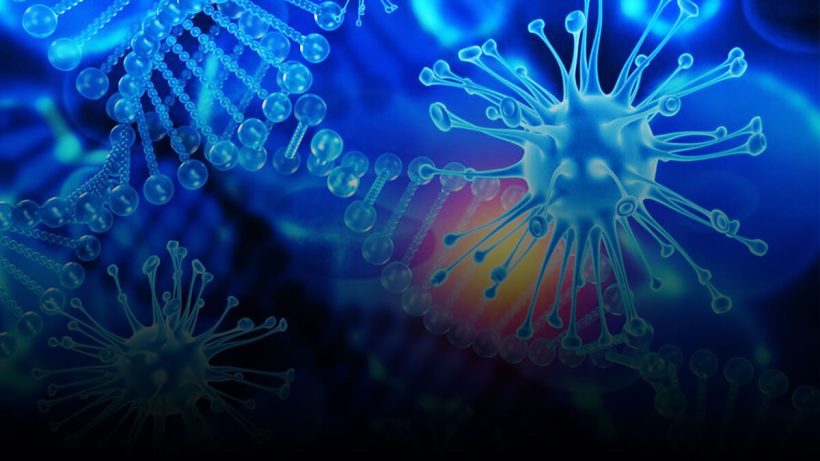An Introduction to Biology
for UPSC Preparation
Biology is a natural science concerned with the study of life and living organisms including their structure, function, growth, origin, evolution, distribution and taxonomy.
Biology is a vast subject containing many subdivisions, topics, and disciplines. Among the most important topics are five unifying principles that can be said to be the fundamental axioms of modern biology.
- Cells are the basic unit of life.
- New species and inherited traits are the product of evolution.
- Genes are the basic unit of heredity.
- An organism regulates its internal environment to maintain a stable and constant condition.
- Living organisms consume and transform energy.
Sub disciplines of biology are recognized on the basis of the scale at which organisms are studied and the methods used to study them.
Biology Index:
Biochemistry examines the rudimentary chemistry of life;
Molecular Biology studies the complex interactions of systems of biological molecules. Cellular Biology examines the basic building block of all life, the cell. Physiology examines the physical and chemical functions of the tissues, organs and organ systems of an organism; and Ecology examines how various organisms interact and associate with their environment.
Basics of Biology: A Workbook & Information Book for UPSC Aspirants
Science and Scientific Methods
Science is dynamic and organised knowledge of natural objects, phenomena and forces which is based on repeatable observation and experimentation. it has several branches which are collectively call natural sciences.
Scientific methods are the study of scientific problems or scientific phenomena through a systematic multi step procedure of observation, formulation of hypothesis, experimentation and development of a theory. It consists of following:
1. Observation: most of the scientific enquiries begin with observation or careful noticing of natural Phenomena. Observation is often directed by human senses of sight, smell, taste, touch and hearing but certain phenomena cannot be observed directly, e.g., Magnetism, Gravitation, Membrane transport etc.
Here, observation is indirect. Some instruments have augmented the power of observation e.g., Field binoculars, Telelenses, Microscope, Chromatography, Autoradiography etc.
2. Identification of Problems: An observation brings forth several questions- how, what and why. While some of the questions have answers, others do not have. One of the latter is identified as a problem to be investigated. The selected problem must have a narrow range and limited aim.
3. Survey of Scientific Literature: Soon after selection literature is surveyed in order to find out what other workers have done in that field.
4. Preliminary Experimentation: It is just possible is completely new and no scientific literature is available on that field. In such cases, the investigator is required to note down one’s past experience or one many perform some preliminary experiments to get some suggestive information.
5. Making Hypothesis: On the basis of past scientific literature or preliminary experimentation, the investigator makes guesses or hypotheses. Out of many guesses or hypotheses, the one most probable is picked up. It should consist of one or a group of interconnected statements.
Recommended Book – https://amzn.to/3QBczSS
6. Testing or experimentation: The worker plans a suitable experiment to test the hypothesis. the experiment is well designed having appropriate materials, well defined procedure and all possible precautions. A control experiment is also run simultaneously, but without the ingredient or material under test. It helps the worker to know the effect of one’s experimentation.
Results of the experiments are recorded carefully and then analyzed and interpreted. Interference or interference are made which may favor or go against the hypothesis. In case of the latter, a new hypothesis is made sometimes the experiment fails. Causes of the failure are found out and the experiment re-planned.
In some cases, experimentation is not possible. Here, repeated observation and statistical data become tool of and investigator. E.g., Movement of Planes, sunrise in the east, study of albinism in human etc.
7. Theorising: If the experiment supports the hypothesis, the latter is changed into a theory. Theory is a generalization which is supported by experiments with repeatable results and is capable of making valid prediction. Theory differs from hypothesis in that it has a predictable value. Every experiment does not produce a theory. Some discoveries are made well ahead of their time. Only on accumulation of supporting data or finding, they get changed into theories. Thus, cell was discovered by Robert Hooke in 1665 but cell theory was formulated by Schleiden and Schwann only in 1838-39.
8. Publication: The research work leading to proposal of theory and the various steps taken in developing the theory is published in a scientific journal of repute, so that finding become available to whole scientific community for confirmation and elaboration.
9. Theories are subject to change: Theories are not universal in their application. They are liable to change with new discoveries, fresh information or alternate interpretation. e.g. Darwin’s theory of Natural selection has been changed to Neo-Darwinism in the light of advancement of knowledge.
10. Principle or Law: It is that generalization or statement of thoroughly tested facts about a scientific phenomenon which is universally reliable in its Predictability.
| Historical Background of Biology |
| Foundations of Modern Biology |
| Research Structural |
| Branches of Biology |
| Biology – A Science of Exceptions |




